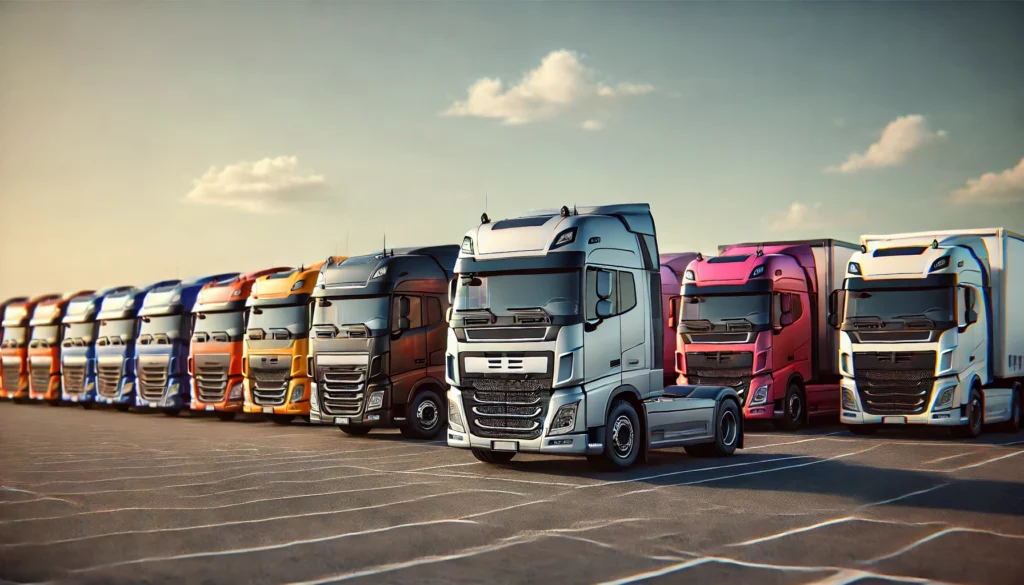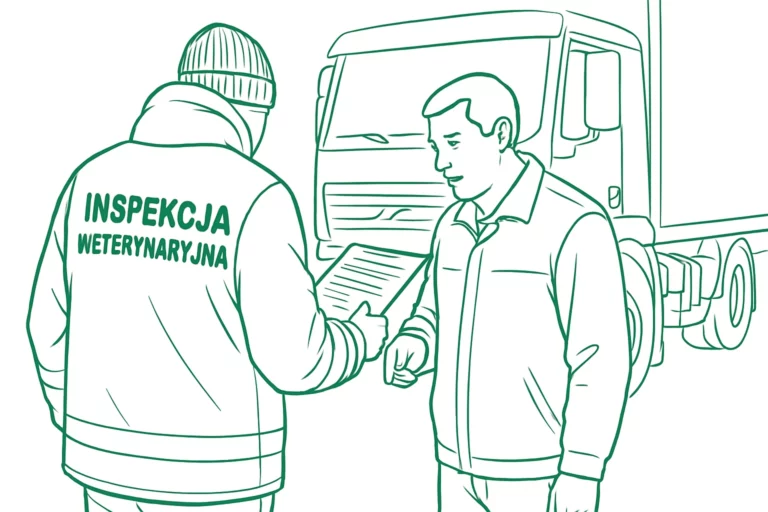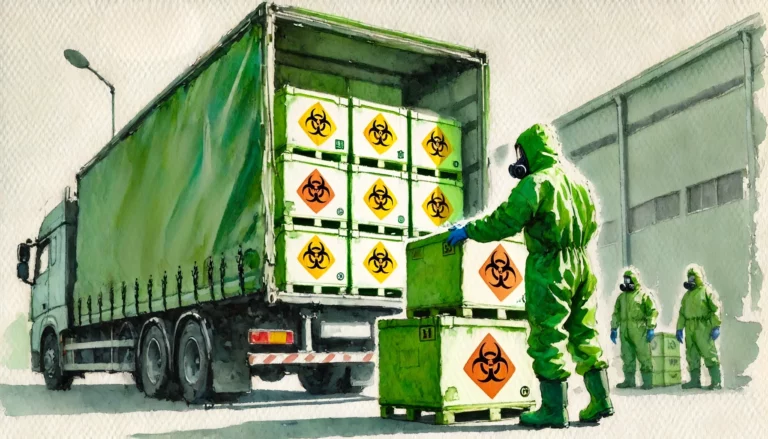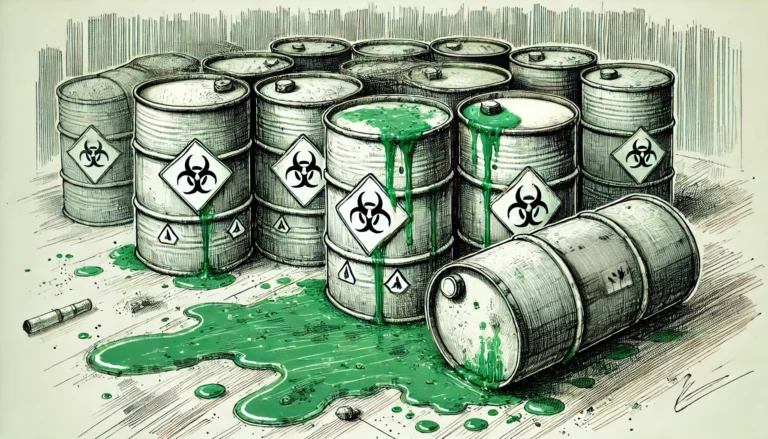The best waste carrier - how to choose one?

Do you produce waste and are looking for a company to deliver it for recycling? Or are you acting on behalf of such a producer who has commissioned you to find a waste carrier? The most common selection criterion is, of course, price. But should it be the decisive factor? It often does not go hand in hand with the quality of the service provided. What should the best waste carrier have?
Waste carrier and categories of materials to be transported
Before choosing the best waste transport company you need to determine what types of waste need to be managed. This is because each type of waste may require a specialised approach. So you need to know which specific company you want to look for.
- Municipal waste: this is, of course, rubbish generated by households and offices. Their transport very often requires special vehicles. It is different when it is already sorted and properly prepared for transport (e.g. baled, tied or wrapped in stretch film).
- Industrial waste: is otherwise known as production waste. They may contain chemicals or other hazardous materials. Depending on the industry that generated them, they may require specialised transport (e.g. in sealed containers) as well as the relevant authorisations.
- Hazardous waste: these can be medical, chemical or radioactive waste. Their transport must comply with strict safety standards. Choosing a company with relevant experience and licences is crucial in this case.
- Waste for recycling: are materials that can be recycled and reused. It is waste such as various types of packaging, scrap metal, waste paper.
Knowing the type of waste you need to transport will help you narrow down your choice of hauliers who specialise in handling it.
A good waste carrier has the necessary licences
One of the most important criteria for selecting a company to transport waste is to check that it has relevant permits and certificates. In Poland, as in many other countries, waste transport is strictly regulated. Licences and certificates prove that a company meets legal requirements and safety standards.
- Waste transport licences: Any company transporting waste must have a waste transport licence. In the case of hazardous waste, additional certificates are required, confirming that the company has the appropriate means and procedures to transport it safely.
- Quality certificates: An example is the certificate ISO 14001, which confirms that the company has implemented an environmental management system. This type of certification is proof that the company takes environmental issues seriously and operates according to best practice.
- Audit and controls: It is worth asking the company about recent audit results and how often compliance checks are carried out. This can give you an idea of how the company cares about safety and the quality of the services it provides.
Verifying licences and certificates before making a decision avoids legal problems and ensures that waste is transported to the highest standards.
Compliance with laws and regulations
Waste transport regulations are frequently updated and failure to comply with them can result in serious consequences for both the transport company and its customers. This is why it is so important to choose a company that operates in accordance with current legislation.
- Knowledge of regulations: The company transporting the waste should be up to date with applicable legislation. This includes not only national regulations, but also local ordinances and EU directives.
- Reporting: Depending on the regulations in your country, companies may be required to report regularly on waste shipments. When choosing a company, it is advisable to ask about its procedures in this regard and how often it carries out internal audits.
- Training for employees: Employees of waste transport companies should receive regular training on health and safety regulations and current legal standards. It is worth making sure that the company takes care of the continuous competence development of its personnel.
Compliance with the regulations is a guarantee that waste will be transported in a safe and legal manner, which is extremely important for both environmental protection and public safety.
A good waste carrier is experienced
A company's experience in the waste transport industry is another key factor that should influence the decision to choose it. A company with many years of experience and a good reputation is most likely to offer a quality service.
- Years on the market: The length of time a company has been on the market is often an indication of its stability and reliability. Companies that have been in operation for many years have usually earned the trust of customers and managed to develop effective procedures.
- Customer feedback: It is advisable to read reviews from other customers. They can provide valuable information on the quality of service, timeliness and customer service. Reviews can be found on the internet, on industry forums or review portals.
- References: Direct references from other companies or institutions that have used the services of the chosen company can be extremely helpful. It is advisable to ask for some contacts of previous clients and seek their opinion on the cooperation.
- Client portfolio: By looking through the company's portfolio, you can get an idea of what projects it has carried out before. Companies that work with large companies or public institutions usually have more experience and a better technical background.
The company's experience is not only the number of years on the market, but also its ability to deal with a variety of challenges and adapt to the changing needs of its customers.
Service offering - comprehensive and flexible
The comprehensiveness of the service offering and the flexibility of the waste haulier are other aspects worth paying attention to. It is good if the company offers a full range of waste transport and management services, which can simplify the cooperation process.
- Wide range of services: It is worth checking whether the company offers not only transport, but also other services such as waste collection, sorting, processing or recycling. A comprehensive offer allows you to centralise all your waste activities with one supplier.
- Flexibility to adapt services: Companies offering a flexible approach to the customer can adapt their services to specific needs. For example, they can offer transport at non-standard hours, adjust the frequency of pickups or offer customised logistics solutions.
- Individual approach: A good waste transport service provider should be able to adapt its solutions to the specific requirements of the client. It is worth asking about the possibility of preparing a tailor-made offer for a specific company or individual.
- Additional services: Some companies also offer waste management consultancy, employee training or consulting services related to the optimisation of waste management processes.
A comprehensive and flexible service offering allows for better waste management, which can bring both economic and environmental benefits.

Waste transport costs
Cost is undoubtedly one of the key factors in choosing a waste carrier. The price for the service can vary depending on a number of factors, so it is worth examining the offer carefully before making a decision.
- Type of waste: Different types of waste can generate different transport costs. Hazardous waste, due to safety requirements, can be more expensive to transport than municipal waste.
- Transport distance: The cost of transport increases with the distance the waste has to be transported. It is worth considering the location of the transport company and the distance to the disposal site.
- Frequency of collection: Regular collections can be cheaper than one-off services. For companies, it is worth considering long-term contracts that can reduce unit costs.
- Special requirements: Transporting waste that requires special procedures (e.g. medical waste) can be more expensive. It is important that the company provides a transparent price list taking into account all additional costs.
- Comparison of offers: Before making a decision, it is worth collecting quotes from several companies and comparing them. However, bear in mind that the lowest price does not always mean the best quality of service.
The cost of waste transport is an important element that should be carefully considered. It is advisable to choose a quote that is cost-effective, but at the same time provides a quality and safe service.
Customer service and company availability
The quality of customer service and the accessibility of a company are factors that can significantly affect satisfaction. A professional firm should be easily accessible and offer support at every stage of the relationship.
- Availability: The company should be available during hours that suit the client. It is advisable to ask about availability for emergencies and whether the company offers services at weekends or on holidays.
- Speed of response: It is important that the company responds quickly to queries and problems raised by customers. Delays can affect the timeliness of service delivery, which is particularly important in the case of waste transport.
- Service culture: Professional customer service includes not only availability, but also the courtesy and helpfulness of employees. It is worth paying attention to how the company communicates with its customers, whether it is open to their needs and willing to cooperate.
- Technical support: In the event of any technical problems (e.g. with containers or vehicles), the company should offer quick and effective solutions. It is worth asking how the company handles such situations.
Good customer service and the company's accessibility can make a significant difference to the positive experience of working together and increase satisfaction with the service.
Waste carrier - its insurance and liability
Transporting waste involves risks, so it is important that the company chosen is properly insured. This provides protection for both the transport company and its customers in the event of unforeseen events.
- Liability insurance: The company should have third-party insurance to cover any damage that may occur during the transportation of waste. It is important that the insurance covers both material damage and health damage.
- Company responsibility: It is worth asking in which situations the company takes responsibility for possible problems, such as damage to containers or accidents during transport. Transparent liability rules demonstrate a professional approach.
- Insurance policies: It is a good idea to ask the company for copies of its insurance policies and an explanation of exactly what they cover before engaging. This allows you to understand what risks are covered by the insurance and what may be potential risks.
Insurance and clear liability rules are crucial to the safety of waste transport and should be one of the main criteria when choosing a company.
Waste carrier - one-off or long term
Before making a decision, it is worth considering whether you need a one-off waste transport service or a long-term relationship with a company. Both approaches have their advantages and disadvantages.
- One-off service: It is suitable for situations where you need a one-off waste haulage service, such as a major renovation or cleaning up after an event. The advantage is that there is no need for a long-term commitment.
- Long-term cooperation: For companies that generate waste on a regular basis, long-term cooperation can bring benefits in the form of lower unit costs and better tailored services. Companies can also count on preferential terms and greater flexibility.
- Framework agreements: It is worth considering signing a framework agreement that sets out the terms of cooperation for a longer period. Such agreements often include more favourable rates and guarantee the permanent availability of services.
- Personalisation of services: Long-term partnerships allow for better tailored services. Companies can offer customised logistics solutions to increase the efficiency of waste transport.
The decision between a one-off service and a long-term partnership should depend on the specifics of your needs and the characteristics of the waste generated.
Waste carrier - how to make the final choice?
Making the final decision on which company to choose for waste transport should be well thought out and based on a thorough analysis of all the information gathered.
- Collect offers: Start with collecting offers from several different companies. Compare them in terms of cost, range of services, availability and feedback from other customers.
- Analyse the criteria: Use the criteria presented in this article, such as licences, experience, insurance coverage or quality of customer service, to evaluate each company.
- Consult the experts: If in doubt, it is advisable to consult waste management experts or a lawyer specialising in environmental legislation.
- Test cooperation: If possible, start with a short-term relationship to assess the quality of the service. If the company meets your expectations, you can consider a long-term contract.
- Make a decision: Once you have gathered all the information and made an analysis, choose the company that best suits your needs and expectations.
Making an informed choice of waste transport company will avoid problems and ensure compliance with regulations and environmental protection.
But why waste time searching the internet when there is a database of hauliers with over 1,000 companies already listed? Take a look at odpadytransport.co.uk or wastelicencecheck.com and see how simple it is.






